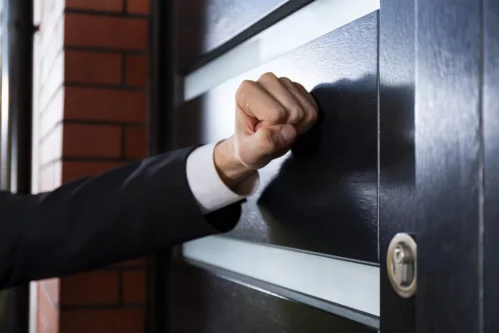Stop Creditor Harassment with Bankruptcy

Harassment from creditors can be stressful and frightening. Bankruptcy will mean that the letters, phone calls and even bailiffs visits will stop.
Included in this article:
- Can creditor harassment continue if you are bankrupt?
- What if you forgot to include a debt?
- What if court action has already been taken?
- Can any debt collection activities continue?
Want help to go bankrupt? Give us a call (0800 044 3194) or complete the form below to speak to one of our experts
Can Creditor Harassment continue if you are Bankrupt?
From the date you go bankrupt your unsecured creditors must stop their harassment. They are all included in the procedure and can no longer send you payment demands or take further legal actions against you to recover their debt.
The Official Receiver (OR) will write to all included creditors. They will confirm you are Bankrupt and that all future communication must now be directed to their office.
It will normally be 2-3 months before the OR contacts them. As such some may continue their harassment activities in the short term. If this happens simply tell them you are bankrupt and give them the details of the OR.
It will take some time for the OR to contact your creditors. If they try to speak to you in the mean time tell them you are bankrupt. It is then unlikely they will contact you again.
What if you forgot to include a debt in your Bankruptcy?
After you have gone bankrupt you may receive a payment demand from a creditor that you did not include on your application form. Maybe you had forgotten about them or did not realise you owed them money.
As long as the debt is unsecured and existed on the date you went bankrupt it is still included. It does not matter that they were not listed in your original application. They are still bound into your bankruptcy.
You simply pass their details to the Official Receiver who will deal with them in the same way as all the others you did list.
Under Section 382 of the Insolvency Act (1986) all unsecured creditors are included in your bankruptcy whether or not you were aware of them. This includes contingent debts such as a mortgage shortfall.
What happens if Court Action has already been taken against you and you go Bankrupt?
It is possible that one or more of your creditors has already taken legal action against you. This could be in the form of a CCJ (County Court Judgment) or Attachment of Earnings.
Once you are bankrupt these Court Orders are overturned. If you are currently making payments towards a CCJ you can stop these as soon as you are bankrupt. Your employer will be informed that further Attachment of Earnings deductions must stop.
The only action that bankruptcy cannot overturn is a Charging Order. If one of these has already been issued against your home the associated debt is secured against your property. As such it cannot now be included in the procedure.
If an Interim Charge has already been issued and you are waiting for the Court Hearing a full Charge may still be granted even if you go bankrupt in the meantime.
Can any Debt Collection activities continue after you are Bankrupt?
After you go bankrupt you are still obliged to make payments towards any debts which are not included in your Bankruptcy. If you do not these creditors can still take action against you to recover their debt.
Good examples of debts which are not included are secured debts such as your mortgage or car finance. However there are also some unsecured debts which fall into this category.
These include things like student loans, parking fines and speeding fines. You must continue to pay these. If you do not you will continue to receive harassment from these creditors.
You must include sufficient allowances in your living expenses budget to maintain payments towards the debts that will not be included in your bankrutcy.